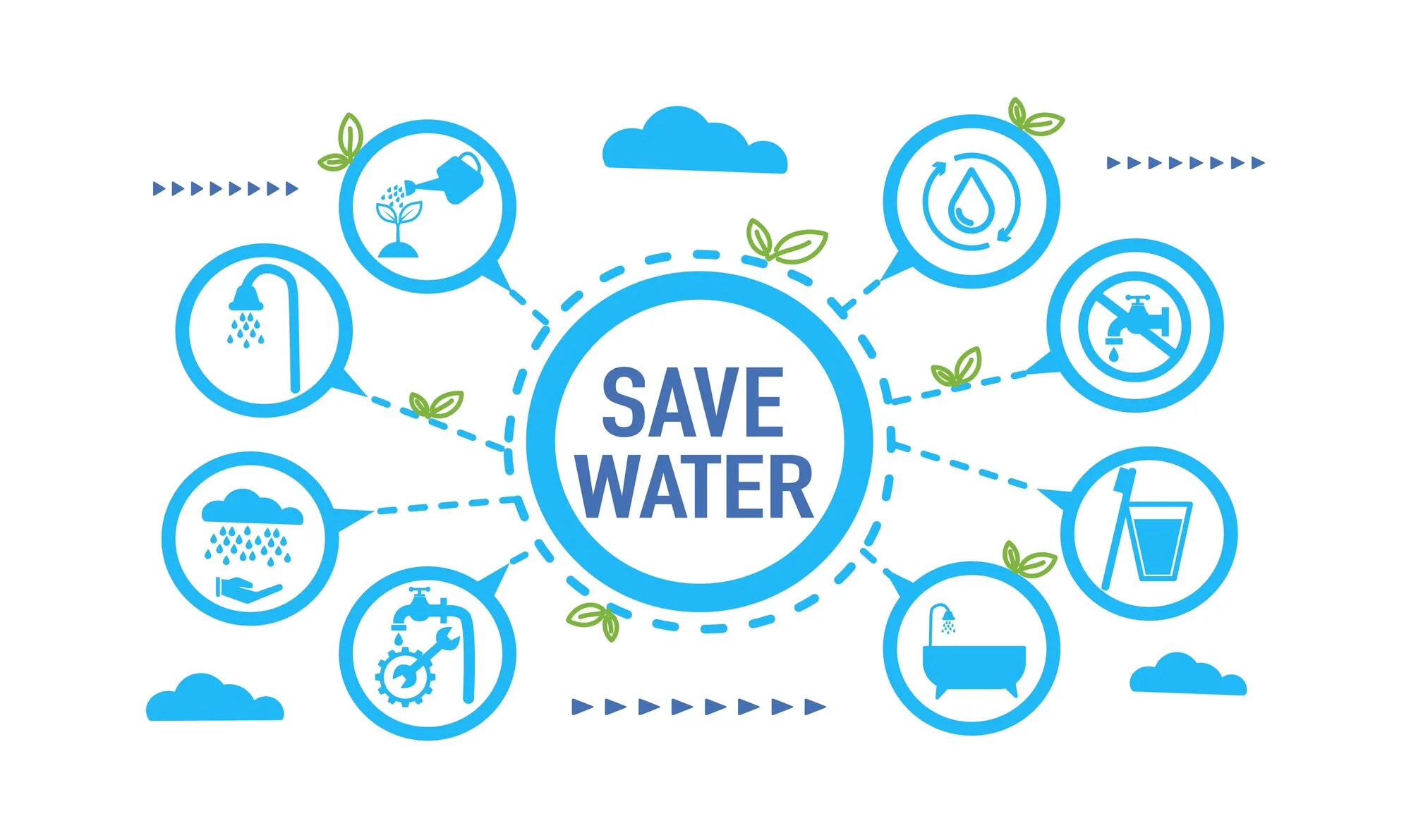
15 Practical Tips for Saving Water
Nowadays, awareness of the importance of water conservation is more crucial than ever. By doing so, we not only contribute to preserving our precious natural resource but also adopt a more sustainable lifestyle that benefits both the environment and our budget.
Why is Water Conservation Important?
Water is becoming an increasingly threatened natural resource due to periods of drought, climate change, and overuse. Even Slovenia, rich in water resources, is facing the consequences of droughts and extreme weather events. Responsible water management is essential for preserving resources for future generations.
How Can Each of Us Combat Water Shortages
Each of us can contribute to more sustainable water use with simple changes in our habits. From reducing unnecessary consumption to using smart devices, every step counts.
15 TIPS FOR WATER CONSERVATION:
-
Always Turn Off the TapsIt may seem obvious, but simply turning off the tap while brushing your teeth, shaving, or washing your hands can save a huge amount of water. If each person turned off the tap just a few seconds earlier, we could collectively save thousands of liters of water!
-
Fix Leaky Faucets and PipesOne drop per second can result in the loss of hundreds of liters of water per year. Regularly check your plumbing and quickly fix any leaks.
-
Efficient Toilet UseInstall dual flush systems or water-saving valves that allow you to adjust the amount of water used for flushing. This can reduce water consumption by up to half.
-
Shorten Shower TimeEvery minute in the shower uses about 10 liters of water. Shorten your shower time or consider installing water-efficient showerheads. If you listen to music while showering, you can use a playlist to remind you when it's time to get out of the shower.
-
Use Water-Saving Faucets and ShowersInstall water-saving fixtures on faucets and showers that reduce water flow while maintaining efficient performance.
-
Collect Condensation from Air ConditionersThe water that condenses from air conditioners is demineralized and ideal for watering plants, cleaning floors, or using in your car (e.g., for windshield washing).
-
Collect RainwaterInstall rainwater collectors and use the water for watering your garden, cleaning your yard, or even for flushing toilets.
-
Reuse WaterUse water left over from washing fruits and vegetables for watering plants or cleaning. Water from the washing machine or bath can be used for flushing toilets. Even small amounts of water can be used effectively.
-
Avoid Unnecessary Water DrainageWhile waiting for hot water to come from the tap, collect the cold water in a bucket and use it for watering plants, cleaning, or flushing toilets.
-
Water Plants in the Morning or EveningWatering plants early in the morning or in the evening prevents evaporation, and plants will better utilize the moisture. This will reduce the need for frequent watering.
-
Use Smart Irrigation SystemsAutomatic and smart irrigation systems measure soil moisture and water only when necessary.
-
Run Dishwashers and Washing Machines Only When FullMake sure to run your dishwasher or washing machine when they are full. This reduces the number of washes, saving both water and energy.
-
Changes in Car WashingInstead of using a hose, wash your car with a bucket and sponge. This can save up to 150 liters of water per wash. Or, visit a car wash that uses recycled water. Also, consider reducing the frequency of car washes.
-
Use Energy-Efficient AppliancesChoose household appliances with high energy and water efficiency. These appliances may require a higher initial investment, but they provide significant savings in the long run.
-
Raise Awareness in OthersShare these tips with friends and family and encourage them to use water responsibly. Together, we can create a sustainable future!
Conclusion
Some of these tips may seem obvious, while others may surprise you. The key is that we all take responsibility for water conservation. Every small step counts, and together, we can make a big difference.
At Fluidmaster, we are committed to developing innovative products and technologies that help conserve water as a valuable natural resource. Let every step we take be aimed at a more sustainable future!


